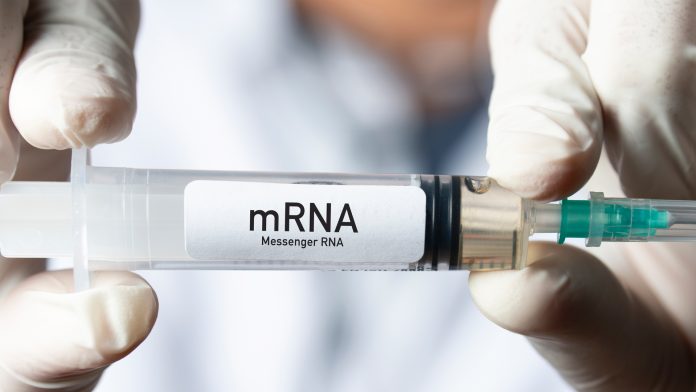
A Japanese research team has pioneered a new all-chemical process that may significantly advance vaccine technology, enabling scientists to design mRNA vaccines for a wide variety of conditions.
Innovated by scientists at Nagoya University, the novel process represents the world’s first completely chemical synthesis method for mRNA. The breakthrough signifies a monumental step in vaccine development, as it may allow for customised mRNA vaccines for a plethora of diseases and facilitate the inexpensive preparation of mRNA in large quantities.
The research, which was funded by the AMED LEAP project ‘Innovation of Chemistry-Based Molecular Design and Production Methods for mRNA and its Application to Vaccines’, is published in ACS Chemical Biology.
What are mRNA vaccines?
The widespread implementation of mRNA vaccines during the COVID-19 pandemic was instrumental in combatting the virus, as they were employed to boost immunity successfully. These types of vaccines teach cells how to create a protein that stimulates the body’s immune response, ensuring that its natural defences recognise the invading virus.
However, a drawback of conventional vaccines that utilise biological processes is that they do not allow for the precise molecular design of mRNA, which limits their use in creating novel vaccines as new disease variants emerge.
Enhancing vaccine technology
In their study, the research synthesised part of the mRNA called the cap, which is an essential component that promotes the translation of mRNA into proteins and safeguards mRNA from degradation.
To prepare synthetic mRNA that is used in vaccines, the two currently used methods rely on enzymes to incorporate the cap structure into the mRNA. However, the team discovered that their new strategy could synthesise a range of chemically modified mRNA strands with a cap structure.
Professor Hiroshi Abe, the leader of the research at Nagoya University, commented: “Our research suggests that it is possible to make mRNAs with precisely introduced chemical modifications with complete control over the process. The molecular design reported in our study exhibits five times higher translational activity than that of enzyme-produced natural-type mRNA. This means that mRNA can be synthesised in large quantities at low cost using chemical synthesis.”
Professor Abe explained that chemically modified mRNA could help to develop customised vaccines against a variety of infectious diseases, including viruses and cancers.
He concluded: “By introducing these chemical modifications, the mRNA becomes stable. This could allow for the creation of long-lasting and effective mRNA vaccines. In addition, it could allow mRNA to be administered directly instead of using lipid nanoparticles, which are used for delivery in current vaccines.
“One of the exciting implications of this research is that this could be used in the next generation of vaccines. We hope that the capping method reported here will be of great use in the development of RNA therapeutics.”
























